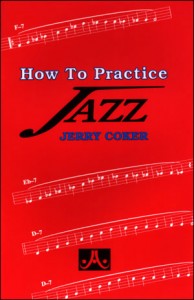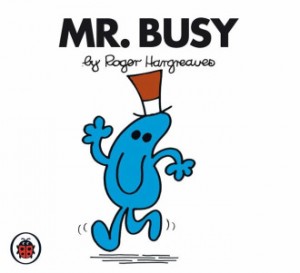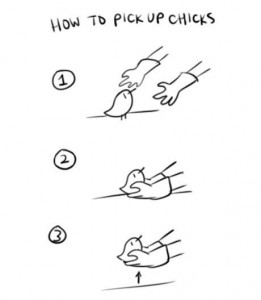Playing music is a skill and an art. Practicing music is also a skill and an art. Practicing is so important because it affects almost every aspect of one’s musical study and performance. No matter what teachers you have, which albums you listen to, or which books you read, practicing is on you. Now, this is not to say you should not take lessons or read books about practicing (*cough, cough, click here http://www.jazzbooks.com/mm5/merchant.mvc?Screen=PROD&Store_Code=JAJAZZ&Product_Code=PJ&Category_Code=#.VEEyQhad5bo to purchase your own copy of “How To Practice Jazz” by Jerry Coker). But you, being the good musician that you are, really want to practice, but there seems to be a void of information where practicing is concerned. So today, we will look at “How To Practice Jazz” by Jerry Coker.
In many ways, practicing is directly related to your success as a musician. If you are in a band, ensemble, orchestra, broadway show, a studio, or any other number of applications, and you do not practice, you can easily be replaced. There will always be someone who is willing to work hard and put in the time. This becomes even more important if being a musician is how you put food on the table, and it’s not just a hobby for kicks and giggles.
Busy, Busy, Busy!
If you are a high school student, headed for college, or a college student getting a full time job to pay the bills, or going on to graduate school, or whatever your next stage of life is that you are entering, it is going to be busy. This has been the case in my life, at any rate. No matter what it is, my level of busy has always increased, never decreased! As you become busier, practice times become even more important to shield, protect and honor. It is easy to say, “I’m just going to skip today and write this paper, do this project, run this errand, whatever, and it won’t effect me…” but the next day is the same, and you begin a downward spiral, circling the drain!
Why?
One of the first questions Coker brings up in his book is, “Why do you want to study jazz?” If your answer is “to pick up chicks” or, “so I will be super cool,” you may start strong, but your fervor will die out quickly. Music is hard. Especially if you want to be good at it. You will need a solid desire, reason, passion, or what-have-you to sustain you when times are hard.
Another question that Coker asks is, “Are you attuned to jazz?” This question is relevant to whatever style of music you are trying to learn better. If you want to sing Opera, you should probably listen to some Golden Age Opera. If you want to play classical Baroque piano, you should probably listen to Bach. If you want to be a Bluegrass mandolin player, Bill Monroe and His Bluegrass Boys would be a great place to start. But, you get the idea. Learn the history, the famous players and composers, styles, techniques, and some of the most popular and greatest works.
Tick Tock
The book contains several practice aids that one can get to help you in your practicing endeavors. Many of these are quite outdated (The book was published 24 years ago), such as a variable-pitch tape machine, which helps get your cassette tapes in tune with your instrument. However, play-a-longs, transcribed solos, and methods for ear training will still be helpful through the end of musical time, even if their delivery method changes. But, the biggest one for me is the metronome. I am going to be perfectly frank. I hate practicing with a metronome. Why? Because I am bad at it! This of course speaks to a baser issue of imperfect timing, but I do not like to talk about that… In the words of my teacher, “If you’re not using a metronome to practice, you’re just playing around.” *sigh* I hate it when he says that.
What Should I Practice?
Well, I am so glad that you asked! The following is a list from Coker’s book. Now, he makes it very clear that you should not try to tackle all of these items at once, but instead focus on a few to check off of your list.
- Tone Quality
- Intervals
- Chord Arpeggios
- Scales
- Patterns and ‘Licks’
- Fermata Practice
- Practicing in All Keys
- The Jazz Language
- Transcribed Solos
- Learning Tunes
- Characteristics of Tunes
- Chromaticism
- Chord Progressions
- Overlapping Phrases
- Tempo & Time
His list goes on for quite a while, and these are just techniques focusing on Jazz music. One thing that Coker warns against is that you do not become too comfortable in your practice routine. Many have the tendency to practice what they are good at, but nothing else. In a sense, to prove to themselves that they can play that specific technique or tune. While this may stroke the ego, it does not help significantly in learning new skills, techniques or tunes.
The Routine
Unfortunately, no one can tell you what the best practice routine for you would be. We all live different lives, with different priorities, and different amounts of time to devote to practicing. Coker provides some models in the book that you could use as a guide, with the techniques and skills previously outlined in the book. For instance, you may take five of those options, and practice four of those for 10 minutes, and one for 20, if you have an hour to practice. Then you could rotate routines every other day, or as needed. If you have more time, you can dedicate longer periods to each technique, tune, etc…
Perfection
The old adage goes something like, “Practice makes perfect!” Is this true? Probably not, the market on perfection is a bit of a niche… But I can promise you that you will be a lot closer to perfection than those who do not practice. It is good. Do it. Practice!


